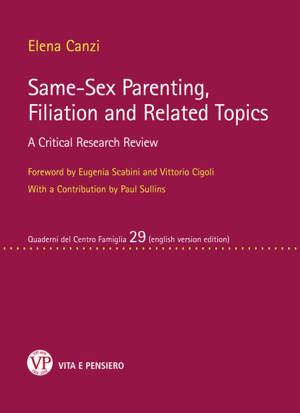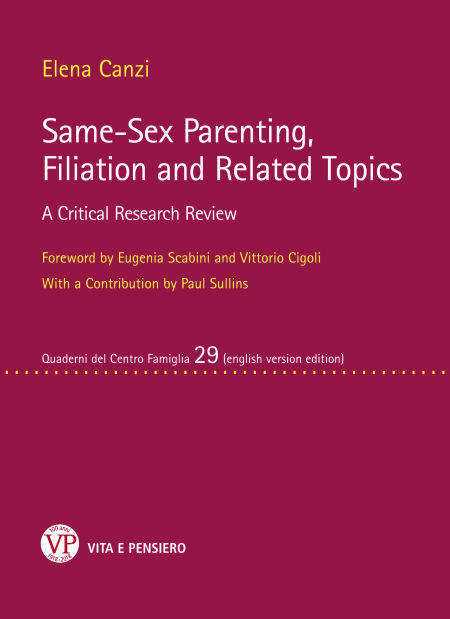
En raison d'une grêve chez bpost, votre commande pourrait être retardée. Vous avez besoin d’un livre rapidement ? Nos magasins vous accueillent à bras ouverts !
- Retrait gratuit dans votre magasin Club
- 7.000.000 titres dans notre catalogue
- Payer en toute sécurité
- Toujours un magasin près de chez vous
En raison de la grêve chez bpost, votre commande pourrait être retardée. Vous avez besoin d’un livre rapidement ? Nos magasins vous accueillent à bras ouverts !
- Retrait gratuit dans votre magasin Club
- 7.000.0000 titres dans notre catalogue
- Payer en toute sécurité
- Toujours un magasin près de chez vous
9,99 €
+ 9 points
Description
The issue of same-sex parenting is the most crucial aspect of the transformation of the anthropological foundations of the family, as it deeply affects the future of the new generations. This problem involves several disciplines, especially in the legal field and the area of psychosocial studies. The latter, moreover, has been the focus of particular attention because same-sex couples' right to parenthood is often justified by the findings of research in the psychological field. Therefore, it is of great interest to document the most significant research into the issue, both qualitative and quantitative in approach, carried out from the 1990s to the present day, and to make this material available to the broader public, with critical commentary. The book is structured as follow. The first part of the volume is dedicated to studies of same-sex couples, with particular attention to the initial stages along the path to parenthood and the relational dynamics in play during the transition. The second part of the volume, instead, examines the issue from the point of view of the children living with same-sex parents, focusing not only on the traditional outcome of wellbeing, such as behavioral adjustment, but also and especially on aspects relating to identity, such as the questions concerning feelings about origins and questions touching on the intergenerational dimension of the family. A third part is dedicated to same-sex adoptive couples, who are too often confused and overlapped with other family compositions, but in our opinion, merit specific attention. We plan to focus on the elements of difference that make adoption a path with specific challenges, and adoption by same-sex couples even more complex.
Spécifications
Parties prenantes
- Auteur(s) :
- Editeur:
Contenu
- Nombre de pages :
- 100
- Langue:
- Anglais
- Collection :
Caractéristiques
- EAN:
- 9788834335178
- Date de parution :
- 14-01-18
- Format:
- Ebook
- Protection digitale:
- Digital watermarking
- Format numérique:

Les avis
Nous publions uniquement les avis qui respectent les conditions requises. Consultez nos conditions pour les avis.






